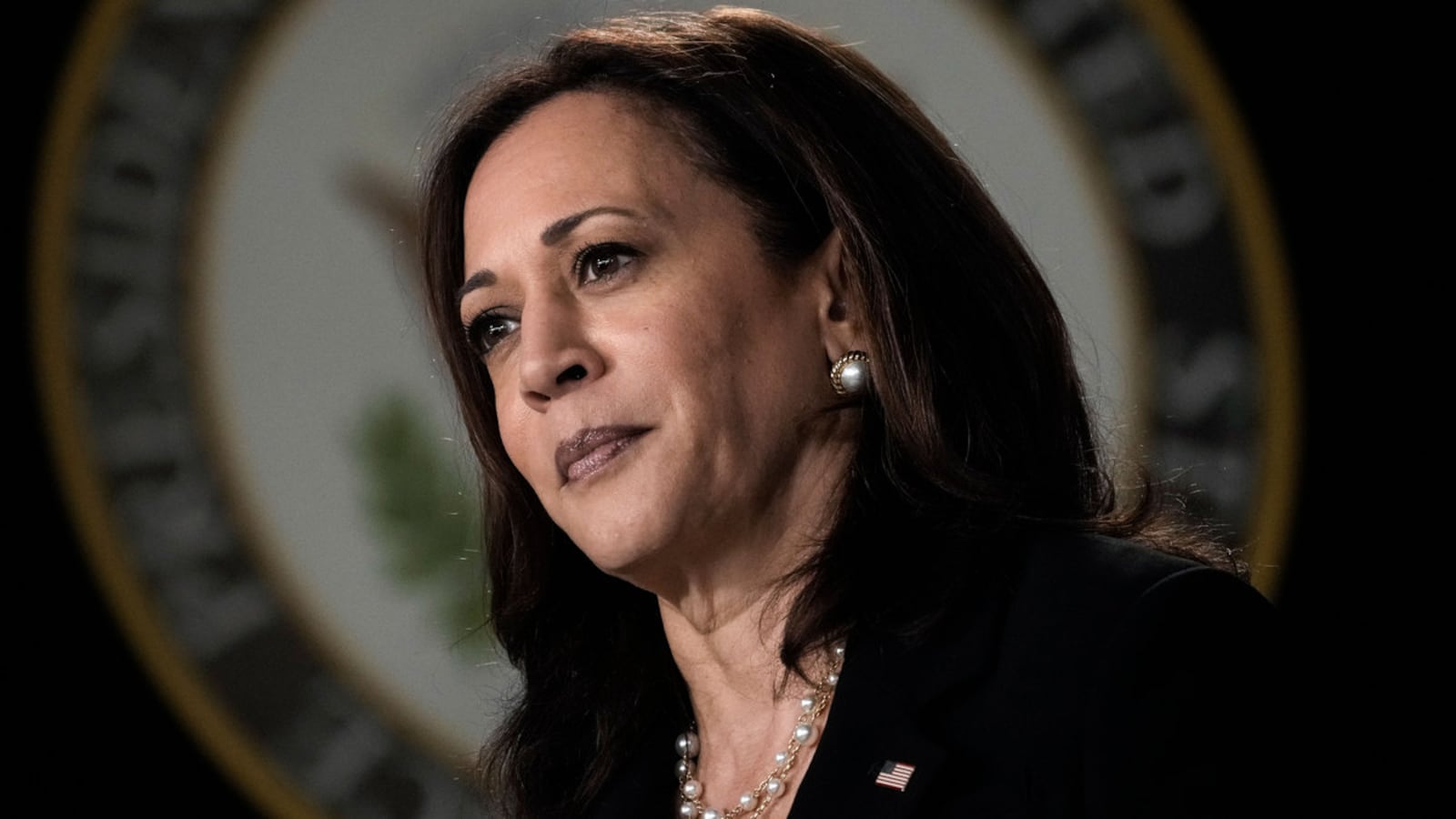As the trial of Jussie Smollett, the former Empire actor accused of faking his own hate crime, began on Monday, a 2019 tweet from Kamala Harris calling it “an attempted modern-day lynching” and declaring that “no one should have to fear for their life because of their sexuality or color of their skin” has resurfaced on social media.
In case you’ve forgotten, Smollett, who is Black and gay, claimed two masked men “doused him with bleach, put a rope around his neck and said, ‘This is MAGA country!’” In Chicago, of all places.
For many progressives, the story was “too good to check”—so they didn’t.
While Harris was far from the only progressive suckered into defending him, her comments were especially noteworthy because she said Smollett had undergone a “modern-day lynching” and because the former prosecutor would, not long after, end up as Joe Biden’s running mate.
As Smollett’s story unraveled, Harris attempted to sanitize her previous statement by crafting a longer one, albeit without directly addressing her original comments. But her updated statement was right about one thing: When someone “makes false claims to the police” she wrote, it “makes it more difficult for other victims of crime to come forward.”
It also erodes the credibility of prominent politicians who endorse it. And this speaks to a bigger problem for Harris: Her habit of making flip comments, and tending to latch on to narratives that confirm her preferred political worldview.
Regarding Christine Blasey Ford’s allegations of sexual assault against Brett Kavanaugh, then-Sen. Harris flatly declared, “I believe her” and even walked out of the hearing, calling it a “sham.” Regarding women who felt uncomfortable with Joe Biden’s unwanted touching, Harris, then running against Biden for the party’s nomination, said, “I believe them, and I respect them being able to tell their story and having the courage to do it.” But when Tara Reade made a more serious allegation of rape, after Harris dropped her presidential bid, she was incredulous (which speaks to the other knock about her: that her beliefs may be influenced by opportunism).
As was the case with Smollett (“one of the kindest, most gentle human beings I know”), Harris provided a personal testimonial for Biden. “The Joe Biden I know is somebody who really has fought for women and empowerment of women and for women’s equality and rights,” she said.
So if she knows you and likes you, that’s enough?
Of course, Harris isn’t the only one guilty of questionable judgment.
Before the Derek Chauvin trial began, President Biden weighed in, saying “I’m praying the verdict is the right verdict, which is—I think it’s overwhelming in my view.” This wasn’t advisable coming from the leader of the free world, but the jury was sequestered and there really isn’t (and wasn’t) a big national debate over whether Chauvin, a then police officer, was guilty of murdering George Floyd.
A more recent (and troubling) example occurred during the Kyle Rittenhouse trial. Although Biden never “explicitly” called Rittenhouse a white supremacist, according to Snopes, “On two occasions, Biden made remarks or promoted a campaign advertisement that strongly suggested Rittenhouse was a white supremacist, or at least, closely associated with white supremacists and/or militia groups.”
Not that long ago, the term “white supremacist” was reserved for… white supremacists. You know, people like David Duke. Today, the term is tossed around so indiscriminately that it has lost some of its previous power. Thanks to insult inflation, many assume it is a false or overblown charge.
The promiscuous use of language doesn’t just erode our trust in the individual guilty of ratcheting up the rhetoric, it also serves to desensitize us from real allegations. When everyone’s a white supremacist, no one is a white supremacist. You can thank folks like Biden and Harris—who back when she was running against Biden, suggested that he had worked with segregationists to oppose bussing to promote desegregation—for that plot twist.
Another problem is the politicization of everything. At a time when a person’s stance on the COVID-19 vaccine is a pretty good predictor of his political affiliation, it’s predictable that prominent court cases would also be sucked into the vortex. Still, those who oppose tribalism should resist this temptation. What we should be rooting for is due process and the rule of law. And in fairness to Biden, his initial reaction to the verdict—“The jury system works, and we have to abide by it”—was spot-on.
But it’s not enough for our top leaders to say the right things after they have exhausted all other options. When our top elected political leaders are haphazard with their rhetoric and prejudge (and potentially prejudice) trials, they contribute to the distrust in America’s elites and institutions.
We should expect more from them. Biden and Harris should do better.



